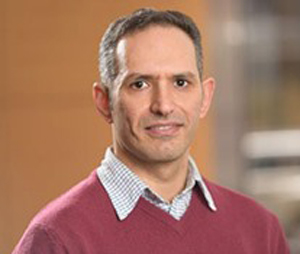Program Information
A Novel Prior-Knowledge-Based Optimization Algorithm for Automatic Treatment Planning and Adaptive Radiotherapy Re-Planning
M Zarepisheh1*, T Long2, n li1, E Romeijn2, X Jia1, S Jiang1, (1) Center for Advanced Radiotherapy Technologies, University of California, San Deigo, La Jolla, CA (2) The University of Michigan, Ann Arbor, MI.
TH-A-116-9 Thursday 8:00AM - 9:55AM Room: 116Purpose:
To develop a novel algorithm that takes existing prior-knowledge information into account in optimization to facilitate automatic treatment planning and adaptive radiotherapy (ART) re-planning.
Methods:
We developed an algorithm to automatically create a treatment plan guided by the DVH curves of a reference plan that contains information on the clinician approved dose-volume trade-offs among different targets/organs and within the same organ. This method has applications in automatic treatment planning and ART re-planning. In ART, the reference plan is the initial plan for the same patient, while for automatic treatment planning the reference plan is selected (based on patient similarity) from a library of clinically approved and delivered plans of previously treated patients with similar medical conditions. The proposed algorithm employs a voxel-based optimization model and approximates the large voxel-based Pareto surface iteratively. The voxel weights are iteratively adjusted to approach a plan that is similar to the reference plan in terms of the DVHs. If the reference plan is feasible but not Pareto optimal, the algorithm generates a Pareto optimal plan consistent with the reference DVHs. If the reference plan is too restricting, the algorithm generates a Pareto plan with DVHs close to the reference ones.
Results:
The algorithm was tested using a series of patient cases and found to be able to automatically adjust the voxel-weighting factors automatically in order to generate a Pareto plan with DVHs similar to the reference plan. The algorithm has been implemented on GPU for high efficiency.
Conclusion:
A novel prior-knowledge-based optimization algorithm has been developed that uses the prior knowledge in optimization process to automatically adjust the voxel weights and generate a clinical optimal plan at high efficiency. It is found that the new algorithm can significantly improve the plan quality and planning efficiency in ART re-planning and automatic treatment planning.
Contact Email:


